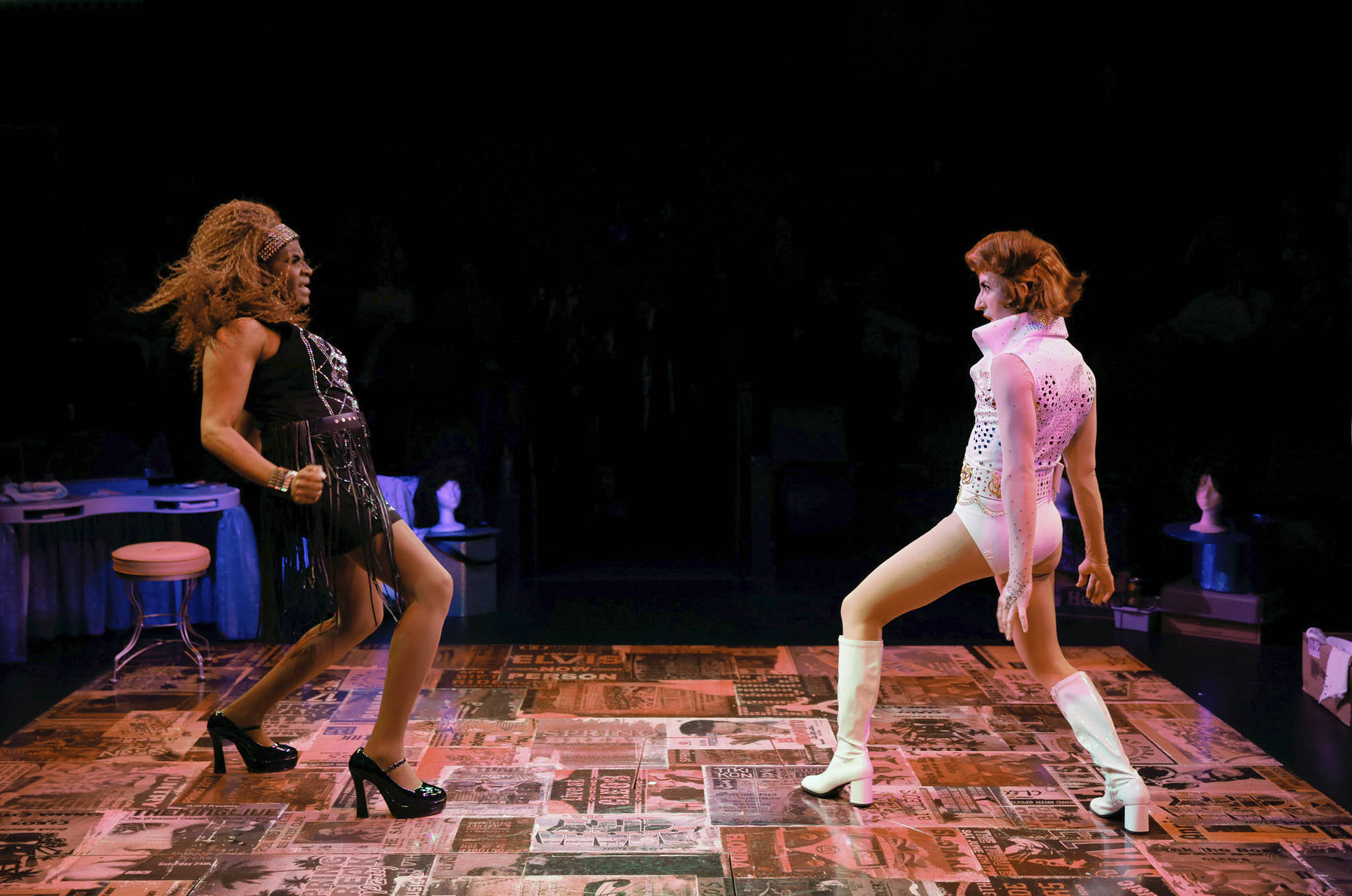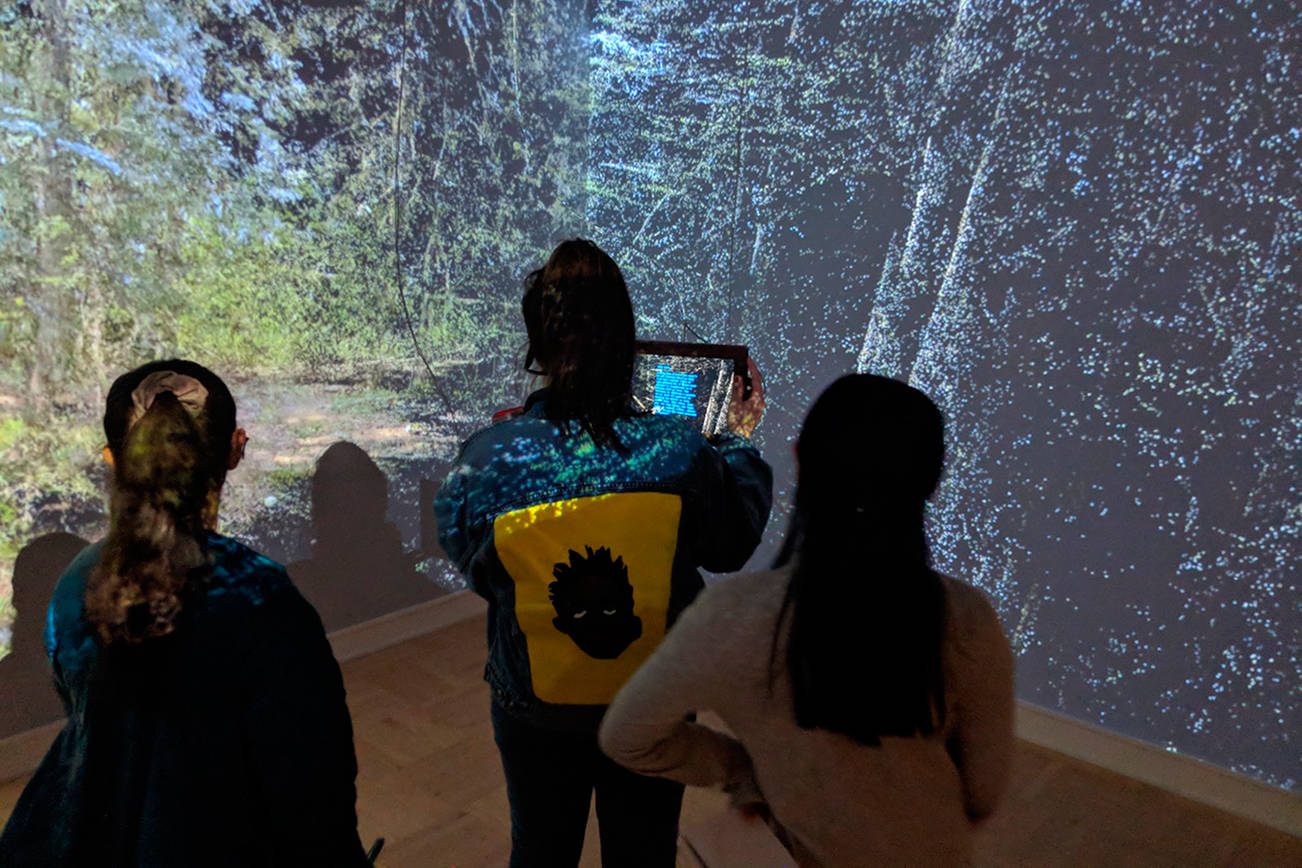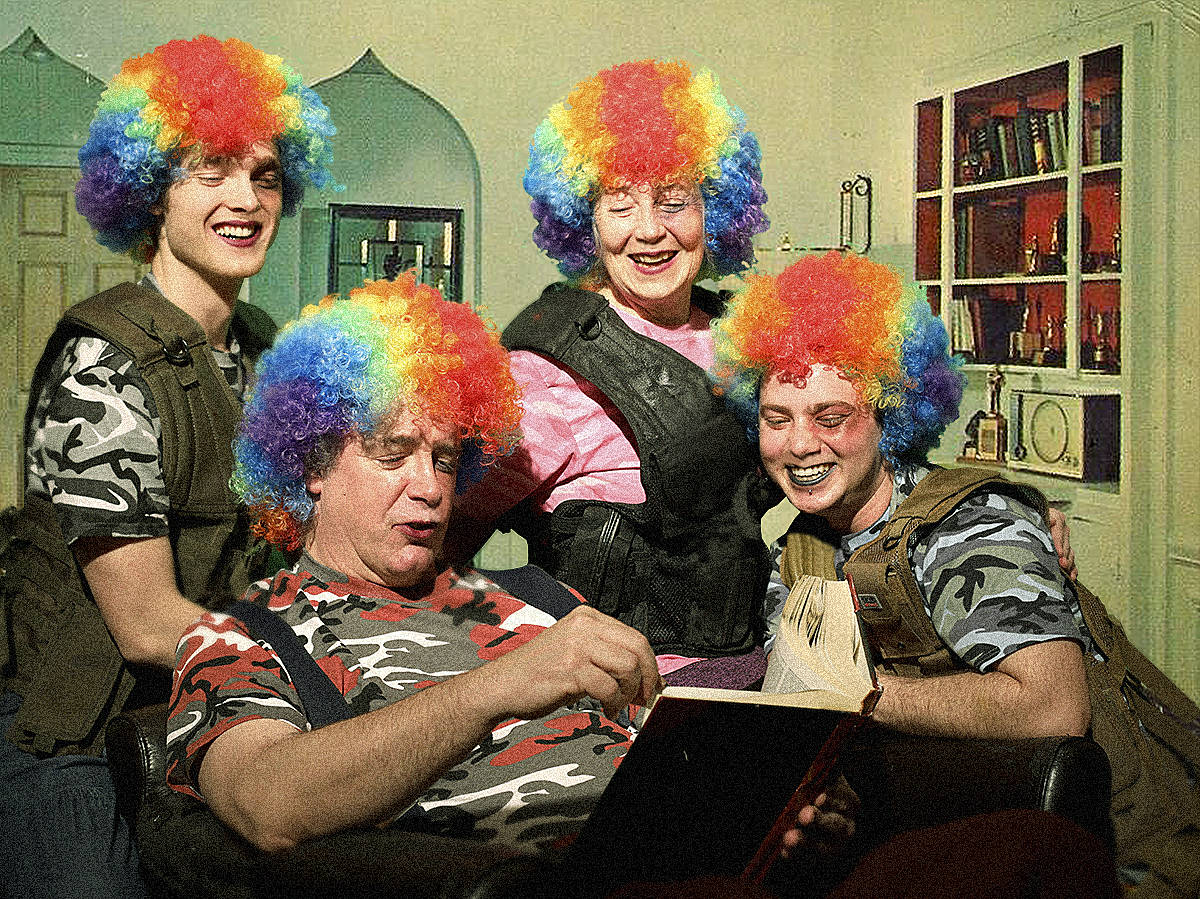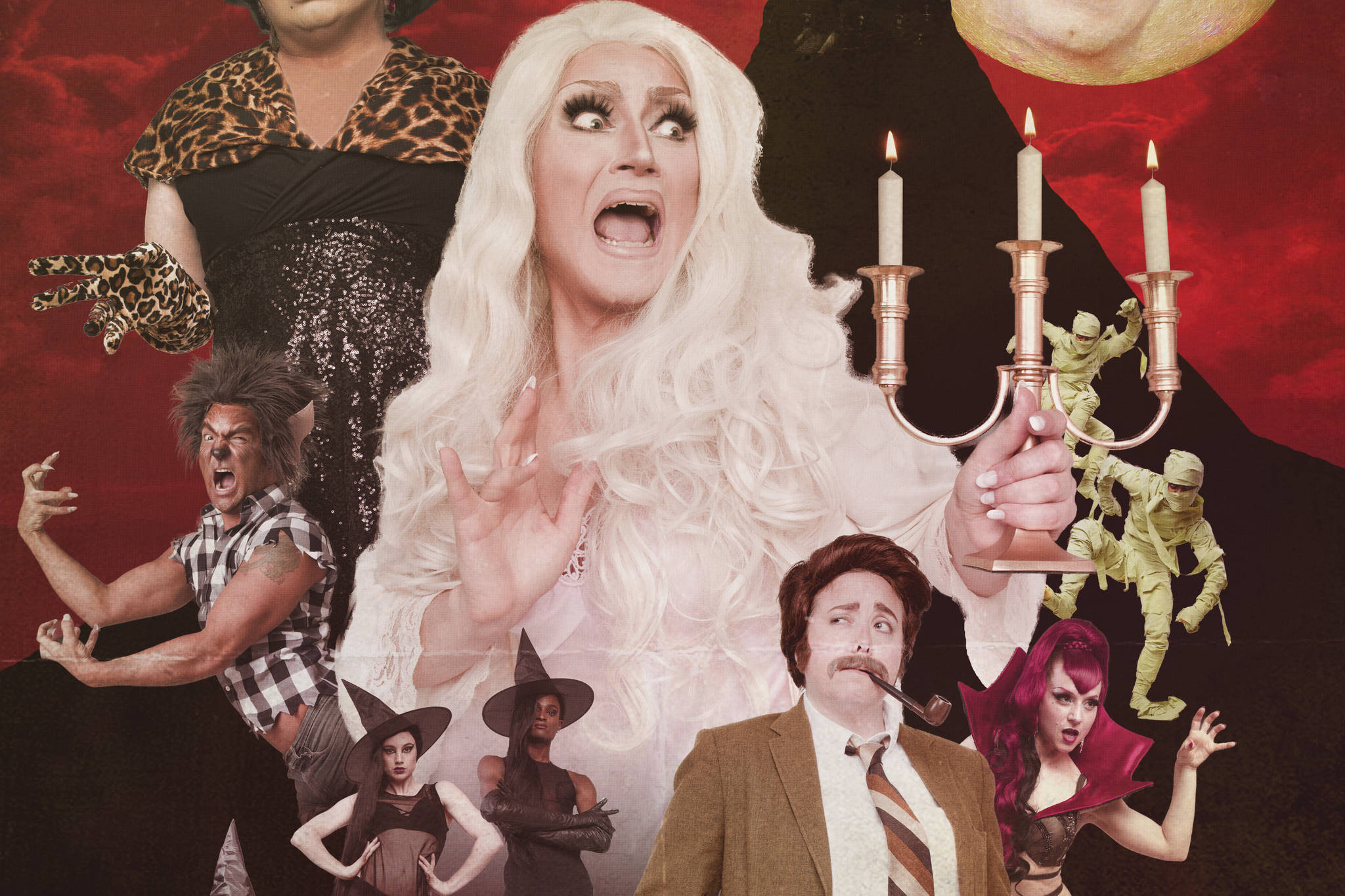“Drag ain’t a hobby. Drag ain’t a night job. Drag is a protest. Drag is a raised fist inside a sequined glove,” Miss Anorexia Nervosa, aka Miss Rexy, says to burgeoning drag queen Casey near the end of ACT’s production of The Legend of Georgia McBride. They are standing in the dressing room of a dive bar in a small town on the Florida Panhandle. Audience members sit surrounding the action, with plastic alligators, flamingos, and a swordfish wrapped in Christmas lights hanging above them. Budweiser and Coors signs buzz with neon electricity next to a sign that reads “Cleo’s Elvis Live 2*Nite!”
Welcome to Cleo’s, the entertainment home of Casey (the dynamic Adam Stadley), an Elvis impersonator-turned-drag queen with expert guidance from the sassy and spectacular Miss Tracy Mills (a vivacious Timothy McCuen Piggee). ACT’s clever, gender-bending production of Matthew Lopez’s play respects the legacy of drag, all appropriately complemented by eccentric scenic and costume design.
Legend opens with Casey performing a poorly attended Elvis set on Cleo’s stage, followed by a smooth set transition into a living room via a couch rising through the floor, an example of Matt Smucker’s superb scenic design. As Casey arrives home, we meet his wife, Jo; (Nastacia Guimont), they both discover that not only has the rent check bounced, but they are also expecting a child. “How are we gonna pay for a baby?” Jo asks. “With love, that’s how,” Casey responds sincerely.
Casey quickly realizes that love will not, in fact, pay for a baby. But hope arrives fabulously in the form of two drag queens: Mills and Rexy (Charles Smith). The queens have an agenda: to make Cleo’s the hottest drag venue in Florida. They swiftly cover the Clorox, mop buckets, and kegs in the back room with wigs, sequins, and eye shadow. “I’ll make a silk purse out of this that will be held together by duct tape and optimism,” says Miss Tracy. Due to an accident with Miss Rexy involving roller skates and vodka, Casey is pulled onstage at the last minute to perform an Edith Piaf number. “We’re in the same boat baby, grab an oar,” Miss Tracy says as she coaches him through creating a drag persona, which develops with class and hilarity due in part to Pete Rush’s intricate costumes. With the new drag duo’s rising success, economic prosperity ensues.
From panty hose to throwing shade, we follow Casey’s drag development. Those skeptical of a story of a straight white cis man doing drag may be pleasantly surprised when Miss Rexy addresses this, calling out Casey for his lack of knowledge of the art form’s history and resistance. “You have no idea what this means,” Rexy says, asking about Stonewall and Divine. The questions are implicitly posed to the audience too: What do straight, cis, white people know about Stonewall and its connection to Seattle’s Pride parade?
In ACT’s lobby are educational materials about famous drag queens and the history of drag. These can be helpful for straight folks attending the show, but they also help place the play within a legacy of queer art making. Queer spaces can be truly magical and defiant, and The Legend of Georgia McBride succeeds at providing a glance into the legitimate enchantment they can bestow. The Legend of Georgia McBride. ACT, 700 Union St., acttheatre.org. $20–$70. All ages. Ends July 2.
stage@seattleweekly.com








